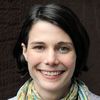Promotion of Postdoctoral Researchers
CEPLAS aims at providing its postdoctoral fellows with the best possible skills and expertise to allow them to achieve their career goals – in and outside academia.
The program comprises active participation in seminar series, research area meetings, symposia and retreats of the cluster. To support postdocs early on to make an informed decision about their further career path, the program includes regular exchange on research and career development (as defined by a postdoc agreement), training, insights into industry and other professional fields and additional support.
Postdoc Agreement
All postdocs work on an individual research project and together with their project leaders sign a postdoc agreement, in which they commit to regularly meet to exchange about research and career development, actively participate and contribute to the official activities of CEPLAS and comply with the “Guidelines for Safeguarding Good Scientific Practice”. Documentation of meetings is required for early stage postdocs.
Training
CEPLAS postdocs are offered a wide range of training courses offered by the participating institutions as well as additional courses organized (on-demand) by CEPLAS (course offers). Workshop modules on Science Communication and Entrepreneurship were organized by the cluster in 2021 and 2022, respectively.
Postdocs can individually choose courses according to their needs, only a course in Good Scientific Practice is mandatory for all postdocs. Upon request, CEPLAS also finances participation at externally offered courses.
Insights into industry
CEPLAS facilitates contacts between postdoctoral researchers and industry. We provide e.g.:
- Assistance in finding cooperation partners for joint research projects
- Assistance with finding a mentor from industry
- Excursions to Industry
- "Speed dating" with scientists from industry
- Career talks with Alumni working in industry
Additional support
CEPLAS provides on demand support for its postdoctoral researchers, like financial support for publications, research stays (mobility fund) or individual coaching. To foster early independence, postdocs can apply for dedicated seed funds in case they want to follow innovative side projects or collaborative projects emerging from their original projects (seed fund).
Furthermore, the cluster’s Equal Opportunity and Diversity Office offers special support for female postdocs (Women@CEPLAS) and postdocs with young children or other care responsibilities, like the “helping hands program” or support to find child care.

Miguel Miñambres Martín (Former Member of CEPLAS Postdoc Program):
"Thanks to the CEPLAS postdoctoral program, I had the opportunity to work in a multidisciplinary scientific environment, utilise state-of-the-art technologies and conduct cutting-edge projects. With all the knowledge and expertise that I obtained within CEPLAS, my scientific career moved fast to a new level, with more responsibilities and a much better future projection. I can only thank CEPLAS for the great opportunity and I recommend to explore and exploit the full CEPLAS potential to the future CEPLAS early career researchers."

Wilma van Esse (Former member of CEPLAS Postdoc Program):
"Within CEPLAS I explored novel approaches to study complex plant traits, in collaboration with scientists from different disciplines. This multidisciplinary environment, combined with advancing my own project and supervising doctoral researchers allowed me to develop on the scientific and personal level."

Henning Frerigmann (Former Member of CEPLAS Postdoc Program):
"CEPLAS offers a great network of scientists with diverse backgrounds and brings researchers from different disciplines together in order to discuss ideas and expertise. CEPLAS gave me the opportunity for a three month research stay in Japan to collaborate with excellent scientists at the RIKEN Centre."

Chihiro Furumizu (Former member of CEPLAS Postdoc Program):
"Being a CEPLAS member, I could place myself in a broader perspective. This helps me to explore a career path to contribute to the global common good through basic research."
Coordinator CEPLAS Postdoc Program
Profile Postdoc Program
current group
- Members: 34
- Female Postdoctoral Researchers: 35%
- International Postdoctoral Researchers: 85% (Australia, Austria, Brazil, Bulgaria, Cameroon, China, France, India, Italy, Japan, Mexico, South Africa, Spain, Switzerland, UK, USA)
Postdoc representatives:
Laura Armbruster & Craig Dent
First funding period (2013 to 2018)
- Members: 40
- Female Postdoctoral Researchers: 65%
- International Postdoctoral Researchers: 58% (Australia, China, Columbia, France, Greece, Italy, India, Japan, Netherlands, Palestine, Poland, Portugal, Switzerland, USA)
